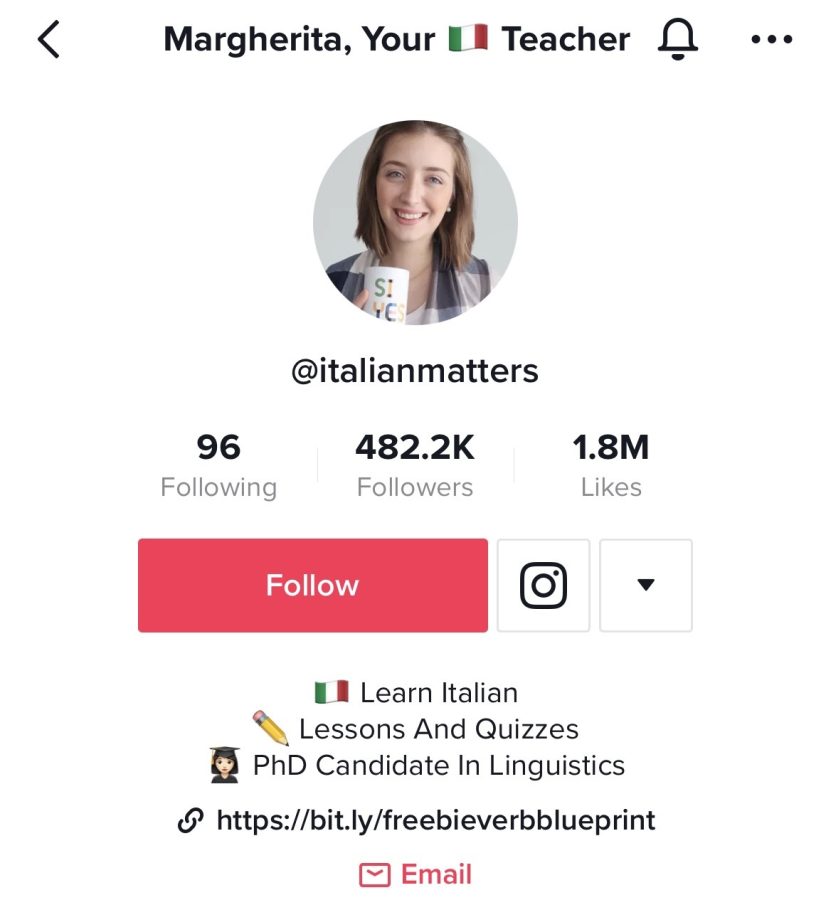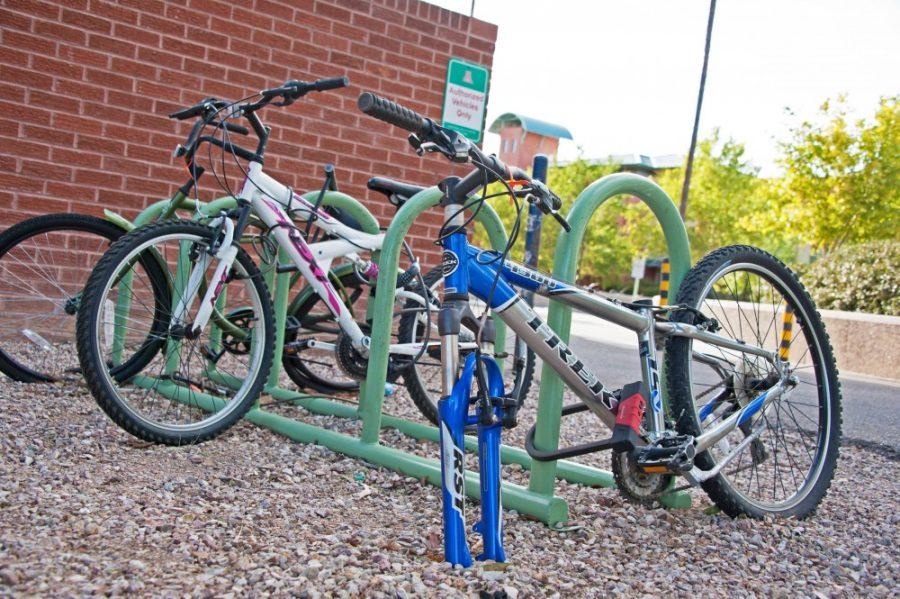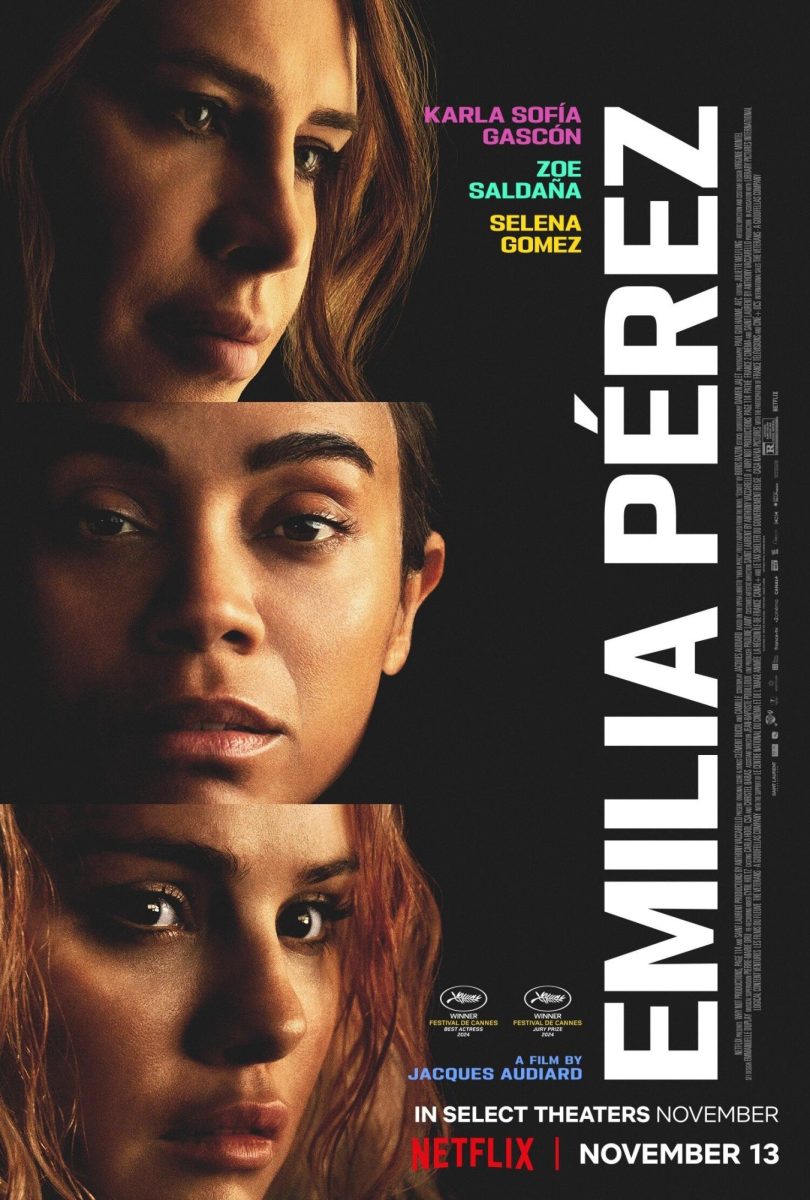If you’ve used TikTok, you probably know it’s impossible to not get stuck in the trance of swiping up and up until it’s dark outside and you missed eating dinner at a normal time. Many of us have the same experience of missing opportunities and not getting any work done while on TikTok.
Our phones are full of social media apps that help us waste time. I can spend hours on TikTok watching funny videos, but it turns out you can actually learn a new language through it.
Sitting in a class to learn a new language can be nerve-wracking, since you don’t have the privacy of practicing alone. When I was a sophomore, I took a Spanish class to meet the university’s language requirement and although I took it with a friend, it made me nervous to get tested on my native language in front of her and 20-ish people.
I wished the class was smaller to practice in or that we had one-on-ones with the professor. Learning a new language through social media, and more so TikTok, is the perfect alternative to Duolingo or paying for a college course.
You get the upper-hand in learning a language in private because you have the exclusivity of messing up by yourself or with your teacher.
RELATED: OPINION: Four reasons why you should learn another language
The advantages of privately learning a new language is touched on in an article by Jumpspeak.
“People usually learn faster with private lessons,” the article said. “This may also lower the cost of the learning process overall. Adaptive teaching is far easier when a student is one-on-one with a teacher.”
Learning a language can be as easy and cheap as logging onto TikTok and utilizing the search engine to what you are looking for in becoming bilingual or multilingual.
I met with a Ph.D. student in the Second Language Acquisition and Teaching program at the University of Arizona, Margherita Berti. She is from Bergamo, Italy, and moved to the United States in 2015 to continue her education after receiving her bachelor’s degree in Italy.
Berti has taught Italian at the university and has even used virtual reality to spread the message that language learning is different and more fun in comparison to how it’s been taught in the past.
Not only has Berti shared her knowledge of her native language with many students in person but has also created her own TikTok account, @italianmatters, during the COVID-19 pandemic where she teaches Italian to her 482.2K thousand followers.
RELATED: OPINION: Go ahead and change your major, nobody is judging
I had a Q&A session via Zoom with Berti about why social media, especially TikTok, makes it so much easier to learn a new language.
Why do you think that TikTok is the perfect candidate for learning a language, rather than Instagram or another app?
Berti: “I think because on TikTok you find short videos. So, in my experience on Instagram, it’s mostly pictures so it’s static. It’s just something there and then maybe a description on every picture. On TikTok, it’s short videos. So for language learning, you have to listen and maybe you have to speak it.”
What do you tell your followers about the learning process of Italian or just getting the ball rolling on learning a new language?
Berti: “What I tell them most of the time is what I think is most important generally about language learning, which is to get exposed to the language and not just focus on grammar rules and just learning things and memorizing things without using them. Because what we see a lot with language learning apps, for example, Duolingo, is that it can be effective for just learning pieces of the language, like the articles or some words by filling in the blanks. But at the end of the day, that’s not really going to help you use the language and speak the language. You can learn things, but you have to use them.”
What tips or advice do you have for your students or followers?
Berti: “So what people really like, and I think it’s interesting, is that we like to learn phrases and chunks of words together compared to the one thing. And for example, I teach five ways of saying something, five ways to say ‘I’m hungry’ in Italian. And I think people like that because they can use these chunks of words with phrases in their everyday life. And that’s a tip I have for language learners, learn pieces of words together in chunks or phrases that they can actually use and not something just memorized. I think it goes back to what’s important, just using the language.”
How fast do you think someone can learn those chunks or phrases on TikTok compared to going to a class?
Berti: “Yeah I think it could be more effective in other ways of learning languages as compared to apps in my opinion. Like apps where you are just filling in the blanks of sentences without listening and speaking sadly. Those are helpful, but up to a certain point. As far as how fast, I don’t know, I think two or three months. If I keep looking at the app and listening to the language and creating these videos of myself duetting with people, so listening, speaking and writing, I’m going to think in two to three months you can get to a good level.”
Why do you think social media is more progressive in learning a language now rather than searching for help on Google?
Berti: “Well, I think it’s more accessible in a sense. I can just search for a hashtag like, #LearnItalian or #LearnItalianPhrases and I get all these different videos of all different Italian people who are teaching some Italian. And it’s more authentic in a sense because they are actually people who took the time to create this content. I think it makes you feel more connected. Maybe if you search on Google for something, you are just searching on Google, on a search website. Especially with [COVID-19] I think people wanted to feel connected while we were all isolated.”
We don’t have to put so much effort in finding the right place to learn a new language nowadays. Focusing on the cultural side of the language you are choosing to learn is also important so that you fully immerse yourself in the language.
Follow Jacqueline Aguilar on Twitter

Jacqueline (she/her), born and raised in Arizona, is a senior studying digital journalism and information science & eSociety. She spends her days with her two huskies, Chemino and Roma. Jacqueline enjoys hiking and is a coffee enthusiast.









